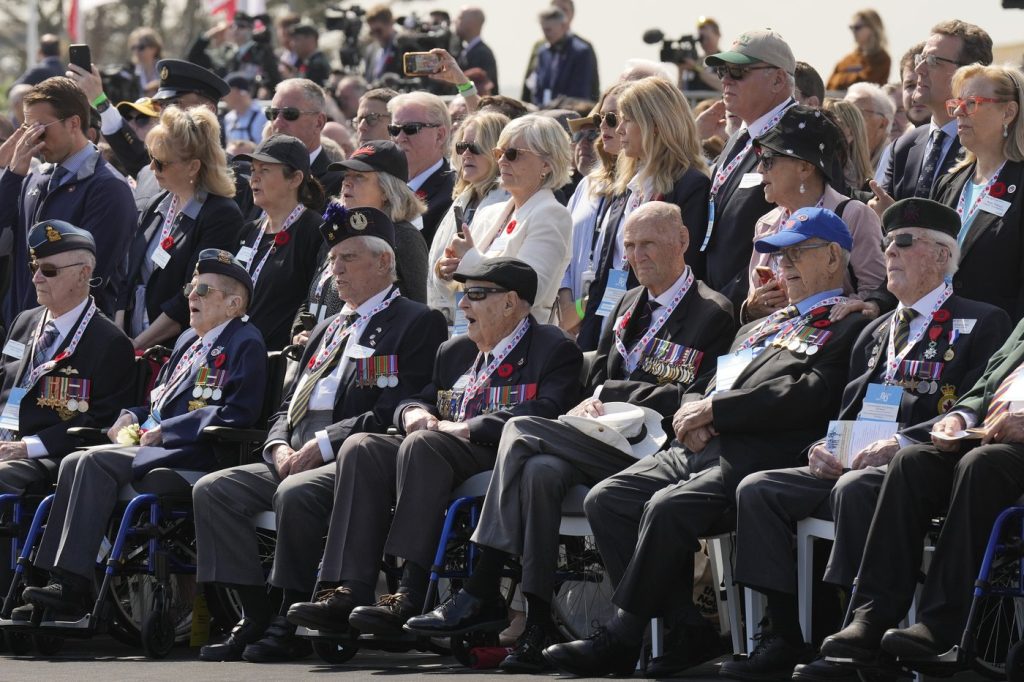The Canadian Press has provided a roundup of significant stories reflecting current events in Canada, particularly as the nation observes Remembrance Day, marking 80 years since the end of World War II. The surviving veterans from this conflict have significantly diminished, with fewer than 3,700 Second World War veterans still living according to the Department of Veterans Affairs. This year also commemorates the 25th anniversary of the entombment of Canada’s Unknown Soldier, representing an unidentified soldier from the First World War. In a related initiative, the federal government plans to highlight the Canadian military’s historical engagements across North America, ranging from disaster responses to humanitarian aid.
Another pressing issue on the health front is Canada’s recent loss of its measles elimination status after holding it since 1998. This setback is attributed to an ongoing outbreak affecting multiple provinces, lasting over a year. Experts from McMaster University, like immunologist Dawn Bowdish, stress the need for enhanced investments in public health, citing cuts to funding, the absence of a national vaccine registry, and a shortage of family doctors amid widespread vaccine misinformation. With measles being among the most contagious diseases globally, achieving herd immunity requires a vaccination rate of at least 95%, underscoring the urgency of addressing these public health challenges.
In international relations, Foreign Affairs Minister Anita Anand is hosting G7 foreign ministers in Ontario’s Niagara region to address critical economic and security issues. Amidst this winter setting, Anand aims to advocate for multilateralism, positioning Canada as a pivotal player on the global stage. The ministers from the G7 countries—France, Germany, Italy, Japan, the United Kingdom, the United States, and the European Union—will focus on a myriad of ongoing global concerns, including Russia’s actions in Ukraine, the fragile situation in Gaza, and China’s dominance in critical minerals.
The federal budget has also recently highlighted a shift in the funding landscape for healthcare, indicating limited flexibility for provinces in negotiating increased healthcare funds. According to economist Mostafa Askari, the Canada Health Transfer is set to rise by 5% annually until 2028, before transitioning to a 3% growth rate thereafter. This development signals a potential decline in the federal share of overall healthcare funding, exacerbating the concerns of provincial leaders who have long sought a more substantial federal contribution.
Furthermore, Ontario has successfully negotiated a one-year extension for the national $10-a-day child-care program with the federal government. This agreement assures parents that their costs will remain stable for at least another year, as the province aims to transition from current average fees of $19 a day toward the target of $10. The Ontario Education Minister, Paul Calandra, cautioned that without addressing a projected $2 billion annual funding shortfall, parents might experience fee increases when the current funding structure expires.
Lastly, municipalities in Manitoba are renewing calls for reform to the Mental Health Act, advocating for reduced police involvement in mental health crisis responses. As rural and northern communities grapple with staffing shortages and an uptick in mental health-related incidents, there is a growing recommendation for mental health organizations to lead on non-violent crisis calls. This movement comes after the NDP government’s pledge over a year ago to review the Mental Health Act, amid concerns raised by families and advocates seeking systemic changes.











